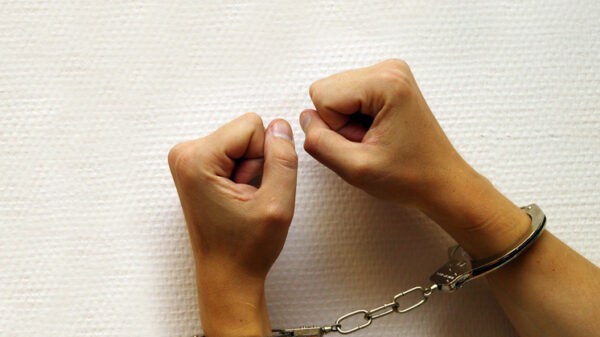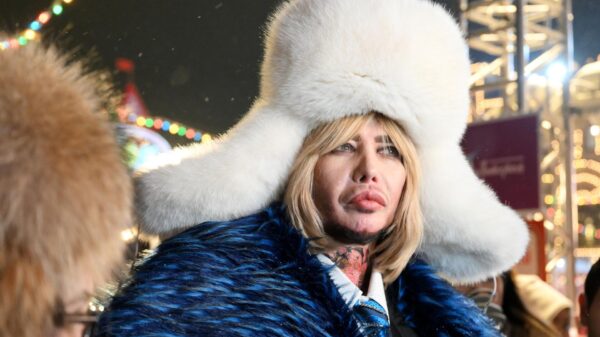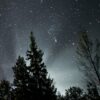 The Berber Lodge hotel room, built in a traditional style from mud bricks, was littered with rubble
The Berber Lodge hotel room, built in a traditional style from mud bricks, was littered with rubble
We were at dinner with friends on the terrace of the eighth floor of a charming hotel in Marrakech when the ground below us began to shake violently. Glasses broke, plates clanged.
Within a couple of seconds everything went dark, and I wondered if the terrace would collapse under our feet. I started counting in my head. I counted to 10 and then the tremors stopped. A giant cloud hung over the city below.
We heard people screaming on the street. Some of us rushed to the stairs; I wanted to linger, feeling, perhaps wrongly, that where we were was safer.
The terrace was in disarray. But the staff calmly invited us downstairs, and I began my trek down the spiral staircase.
The street below was full of people calling for family members, hugging other survivors and smoking anxiously as they watched the scenes unfold before them.
A group of Mexican tourists told us that they are very used to earthquakes in Mexico. City, but never encountered this. They wanted to leave the country as soon as possible.
Aftershocks
The atmosphere was eerie, but surprisingly peaceful. We were all grateful to be alive, but also aware of the danger and scale of this drama. The Moroccans kept telling us it was impossible; that they had never experienced an earthquake in Marrakesh. Some of our friends staying nearby decided to walk to their hotel.
Our own accommodation, Berber Lodge, was remote, in the foothills of the Atlas Mountains, about 40 minutes south of Marrakech, so they invited us to stay with them. But we really wanted to return to the Lodge, thinking that it would be much quieter there, away from the shaking city.
We called our driver. His car was totaled, but that wasn't a problem, he said. “I’ll come with a friend and take you back to the hotel,” we were told. And he did, 20 minutes later. We called our children, who were more concerned about the Rugby World Cup than the news that their parents had survived the earthquake. Reports of death and destruction had not yet reached the editors by that time.
 “A giant cloud hung over the city below”
“A giant cloud hung over the city below”
Back at the Berber Lodge, we thought we would be escaping the earthquake, but in fact we were heading towards its epicenter. We approached a pitch-black house and made our way inside through a door blocked with rubble. Crossing the empty hotel grounds, we reached a corridor lit by candles and littered with broken pottery and debris.
All the guests gathered in the garden, where staff served food and drinks. Staff said no one was hurt but warned it was very close.
We were asked if we had checked our room, which was built in the traditional style with mud bricks. We immediately went there and found it in ruins — the wall above our bed had partially collapsed, burying our pillows in bricks.
Narrow Escapes
As we returned to the garden, stories of narrow escapes began to emerge. appear.
When the tremors began, a young Dutch couple who lived next door were lying in bed and ran naked into the street in a panic. Feeling uneasy, the woman returned to get a sheet when a wall collapsed in their room.
The other couple was unable to find the door keys and were forced to escape through the window.
p>During the night The hotel staff, all of whom live in a nearby village, stayed with us, brought us fruit and candles and offered their support.
Along with the other guests, we eventually decided to sleep by the hotel pool on sun loungers placed under the olive trees.
We returned to our room to grab the dusty pillows, sheets and blankets from the bed before shaking them out and settling down for the night.
Outside the hotel, wild dogs barked in the starry darkness. , and prayers were heard all night.
I got up around 3 am, when everyone was still sleeping, and walked back to the main hotel building. The lights came back on, illuminating the interior and giving it an otherworldly appearance.
In the large hall, ancient ceramics were miraculously preserved, although partially damaged and covered with dust. I turned off the lights one by one and returned to my temporary bed.
In the following days we remained quiet and calm as helicopters flew back and forth to the Atlas Mountains to our south. We were all tired, we barely slept the first night. Our adrenaline subsided and we slowly began to realize the damage and death that had been caused.
Loss of loved ones
People around us have lost loved ones. One of the hotel's beautiful cooks was crying in the kitchen, mourning the loss of her home. She was a single mother. The hotel owner, Romain, said that restoring a house in the area would cost at least 5,000 euros, a huge sum for the locals.
Another ashen-faced employee has just learned that his best friend has lost his wife and daughter.
We decided to stay until the end of the weekend as originally planned, and Romain and his staff continued to look after us in the most kind manner. He cooked and cared for his staff as well as the guests. He moved us to a bedroom that was less damaged, but refused to charge us for the room, offering instead to contribute to a local home restoration fund.
He drove us to the airport on Sunday morning. , since there was no taxi. We hugged everyone before leaving.
The Moroccans we met were decent, kind and efficient throughout the crisis. When the trip came to an end, we were overcome with great sadness. Death and desolation were now felt everywhere and in everyone.
And I also had a feeling of guilt. We came here for pleasure and fun; we were safe, but now we have left behind the hardest hit people.
Eleanor Dresch is the founder of the online magazine Culture Whisper. The Berber Lodge is raising funds for local residents who will have to rebuild their homes after the earthquake. Full details can be found on their Instagram page @berberlodge
.


























































Свежие комментарии